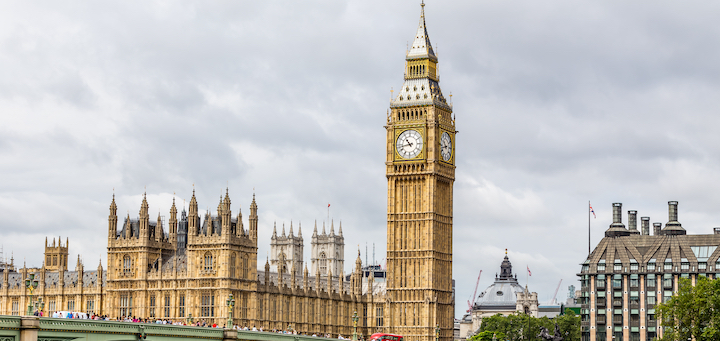An additional £500m of new funding for councils to deliver social care has been announced by the government, while local authorities will now be required to produce productivity plans.
The funding will be distributed through the Social Care Grant, which is ringfenced for adult and children’s social care, and is further to the £1bn in additional funding announced in the Autumn Statement 2022 and July 2023.
Further details on the exceptional provision of the new funding will be set out at the upcoming Budget, according to Michael Gove, secretary of state for levelling up, housing and communities, in a written statement to parliament.
Gove said that, where possible, councils should invest in areas that help place children’s social care services on a sustainable financial footing, “whilst being mindful of the level of adult social care provision”.
This includes investment in expanding family help and targeted early intervention, expanding kinship care, and boosting the number of foster carers, he stated.
He also said the new funding would reduce pressures on other areas of children’s services such as home to school transport, “where we recognise there has been a significant increase in pressures for special educational needs and disability services”.

Gove also set out other plans for the final Local Government Finance Settlement for 2024-25, in an overall package he said was worth £600m.
These include increasing the Funding Guarantee to 4% from the 3% outlined in the provisional settlement, which he said would ensure all authorities see a minimum increase in Core Spending Power of 4%, before local decisions on council tax.
He also pledged to support rural councils with a £15m increase to the Rural Service Delivery Grant in 2024-25 and provide support to authorities experiencing significant difficulties because of Internal Drainage Board levies.
Finally, Gove said the government would provide additional funding for the Isle of Wight and the Isles of Scilly, in recognition of their “unique circumstances”.
Gove’s written statement said the additional measures mean the Local Government Finance Settlement for 2024-25 will make available more than £64.7bn, which he said was an increase of 7.5% in cash terms on 2023-24.
He said the funding illustrated central government’s “commitment” to local government. “We are in their corner [and] have listened to councils across England about the pressures they’re facing and have always stood ready to help those in need,” Gove stated.
Minister for local government Simon Hoare said the additional funding would “help ensure services which people rely on can continue – and demonstrates how important we view local government”.
The additional funding follows a consultation on the provisional 2024-25 Local Government Finance Settlement announced in December, engagement with over 90 MPs and local government leaders, and issues raised by MPs.
In his written statement, Gove emphasised that all funding “should be used by local authorities to deliver the frontline services on which our communities rely, rather than to be put aside for later use”. The level of local authority reserves will continue to be monitored, he added.
Gove said the Department for Levelling Up, Housing and Communities (DLUHC) would also now require local authorities to produce productivity plans “setting out how they will improve service performance and reduce wasteful expenditure to ensure every area is making best use of taxpayers’ money. I encourage local authorities to consider whether expenditure on discredited equality, diversity and inclusion programmes meets this objective.”
DLUHC will also establish an expert panel to advise the government on financial sustainability in the sector, which will include the Office for Local Government and the Local Government Association. The panel will review local authority productivity plans and advise the government on best practice in this area.

“The government will monitor these plans and use them to inform funding settlements in future years,” Gove stated. “Our aim is for local authorities to produce these plans by the summer recess, and we will design a process for local authorities which will enable them to do so. We will provide more information on these requirements for local authorities at the final settlement.”
Gove also warned that the government would “legislate if necessary” on four-day working weeks as they “reduce the potential capacity to deliver services by up to 20%, and as a result do not deliver value”.
Sector response
Tim Oliver, chairman of the County Councils Network (CCN) , said the organisation “strongly welcomed” the government listening to concerns outlined in a letter signed by more than 40 MPs which was co-ordinated by the CCN and the County All-Party Parliamentary Group (APPG).
Oliver said the additional funding would go “some way to easing the pressures councils face”, but added: “Whilst this extra funding will undoubtedly help us protect valued frontline services, councils, of course, still face difficult decisions when setting their budgets for 2024/25. Service reductions will still be necessary for councils in some areas to balance their books, while the majority of councils will still have little choice but to propose maximum council tax rises.
“Looking further ahead, reform of local government finance and the way in which we are expected to provide services is imperative. Councils require a long-term financial settlement to enable us to plan for, and meet, the demand from our growing elderly populations and the more complex needs of residents requiring social care. This must be coupled with a comprehensive reform programme to bring in line the funding envelope available to enable us to deliver effectively our statutory responsibilities.”
Sam Chapman-Allen, chairman of the District Councils’ Network, welcomed the government’s “decision to allocate additional funding for essential district services, a move that will benefit residents and businesses throughout England”.
He added: “This offers some relief to district councils and the communities we support. It will help mitigate potentially extensive reductions to valued local services. But it’s important to note that the financial and operating challenges for district councils remain significant.
“It is clear that more comprehensive solutions will still be needed to fully address the ongoing financial pressures, including homelessness.”
Shaun Davies, chair of the Local Government Association (LGA), commented: “The LGA welcomes that the government has acted on the concerns we have raised and recognised the severe financial pressures facing councils, particularly in providing services to the most vulnerable children and adults through social care services and delivering core front-line services to communities.
“We will continue to work with government to achieve a sustainable long term funding settlement and updated distribution mechanisms, as well as legislative reform where needed, so that local government can play its full part in delivering inclusive prosperity and growth through investment to support people, places, and the planet.”
—————
FREE bi-weekly newsletters
Subscribe to Room151 Newsletters
Follow us on LinkedIn
Follow us here
Monthly Online Treasury Briefing
Sign up here with a .gov.uk email address
Room151 Webinars
Visit the Room151 channel













